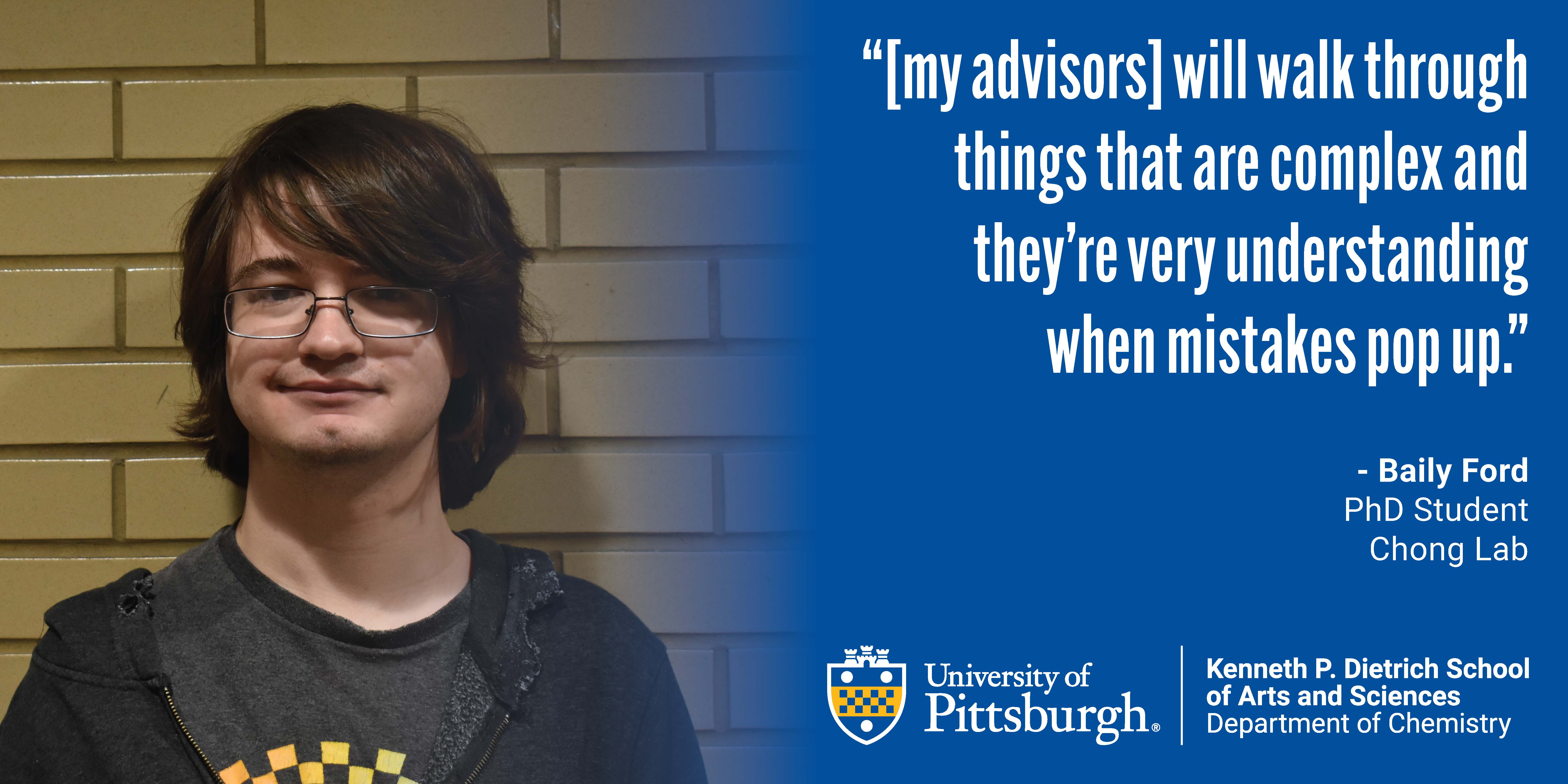
Baily Ford was always a good student and was strongly attracted to chemistry and physics, but it was working as a chemistry tutor in high school that helped him decide to major in chemistry.
“I did chemistry tutoring in high school, helping students who failed their courses to make up credits,” Ford says. “A lot of students fail chemistry, especially when you’re in rural Tennessee, so I ended up doing the equivalent of gen chem 1 like 100 times before I even got to college.”
Ford, a member of the Chong lab, works on building algorithms to efficiently sample the conformational space of biomolecules. Biomolecules like proteins and DNA are large, and can arrange themselves in space in many different ways. In his research, Ford has developed programs to determine how probable each of these conformations is.
Before coming to Pitt, Ford was an undergraduate at Austin Peay State University, where he researched the effects of arsenic and lead poisoning on things that live in soil. Though Ford found it interesting, he thought it would be a smart choice not to work with hazardous chemicals.
“I’m not that great at the lab portion,” Ford says. “And after working with arsenic and lead, I thought ‘man, I’d like to work with something that’s not gonna kill me.’”
While Ford works mainly in the Chong group, he is co-advised by Dr. Chong and by Dr. Garrett-Roe. He feels they are both a great fit as advisors and has found them both incredible resources and mentors.
“They’re really helpful and very patient,” Ford says. “They’ll walk through things that are complex and they’re very understanding when mistakes pop up and whatnot. Also, the other students in the group are super helpful and know way more than they should.”
For Ford, coming from rural Tennessee to a city like Pittsburgh was an interesting change, mostly because Ford found he could walk everywhere.
“I always hear people complain that Pittsburgh isn’t very walkable, which is weird to me because there’s actually sidewalks everywhere,” Fords says. “In Tennessee that doesn’t really occur anywhere outside of Nashville or Memphis.”
Reflecting on his time in both the city and the university, Ford realized how much he has grown and learned since he first arrived as a newly minted graduate student.
“Coming to Pitt has really broadened my horizons. I moved from a smaller place into a city, and I learned a lot about computational sciences,” Ford says.

